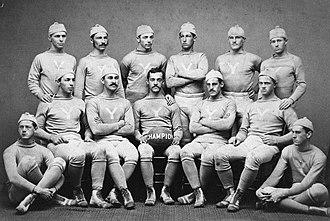As one of the most popular sports in the world, football (or soccer, as it is known in some regions) boasts a storied history filled with remarkable milestones adn legendary figures that have shaped its course over centuries. From its ancient origins to the establishment of modern leagues and international competitions, the evolution of this beloved game reflects not onyl sporting achievements but also cultural and social transformations across the globe. In this article, we delve into the key moments and iconic players that have defined football, exploring how the sport has transcended boundaries and united diverse communities. Join us as we journey through time to uncover the milestones and legends that have made football an enduring symbol of passion, skill, and teamwork.
Table of Contents
- The Origins of Football and Its Evolution Through the Ages
- key milestones That Shaped Modern Football
- Iconic Figures and Their Enduring Legacies in the Game
- The Future of Football: Trends, Innovations, and Insights
- The Conclusion
The Origins of Football and Its evolution Through the Ages
football, known in various parts of the world as soccer, has roots that trace back over 2,000 years. Evidence suggests that ancient civilizations in china, Greece, and Rome played games involving a ball and feet, but it was in England during the 19th century that modern football began to take shape. The establishment of standardized rules marked a turning point, leading to the creation of the Football Association in 1863. This institution introduced a codified set of regulations, facilitating the spread of the game across Europe and eventually the globe. The infamous Cambridge Rules of 1848 and the subsequent FA rules were pivotal in defining the game as we know it today.
As football gained popularity, it underwent significant changes, evolving into the dynamic sport celebrated worldwide today. Key milestones include the first official international match in 1872 between England and Scotland, the formation of FIFA in 1904, and the inception of the World Cup in 1930, which showcased the sport’s global appeal. With the introduction of professional leagues, television broadcasts, and technological advancements like VAR, football has continually adapted to new audiences. Today, the game connects millions, transcending cultural barriers and fostering unity through a shared passion for the gorgeous game.
| Year | Milestone |
|---|---|
| 1863 | Formation of The Football Association |
| 1872 | First international match |
| 1904 | Establishment of FIFA |
| 1930 | First World Cup held in Uruguay |
Key Milestones That Shaped Modern Football
Modern football is a tapestry woven through centuries of evolution, where pivotal moments have defined its path. Among the most significant events,the introduction of the FIFA World Cup in 1930 marked the transition of football into a global phenomenon,uniting nations in a festivity of sport. This prestigious tournament not only showcased elite talent but also sparked a fierce national pride among fans worldwide. Another landmark was the establishment of professional leagues, which began in the early 20th century, fundamentally altering how the game was perceived and played.
Technological advancements have also played a crucial role in shaping today’s game. The implementation of VAR (Video Assistant Referee) in 2018 highlighted the sport’s commitment to fairness and accuracy, even though it sparked debate among purists. Moreover, the rise of sports analytics has transformed team strategies and player development, ushering in a data-driven era. As football continues to evolve, these milestones serve as reminders of the rich history that informs the beautiful game.
Iconic Figures and Their Enduring Legacies in the Game
Throughout the history of football,certain individuals have transcended the sport itself,becoming symbols of skill,perseverance,and leadership. These figures have left an indelible mark on the game, shaping not only its tactics and strategies but also its cultural significance. Some of the most notable names include:
- Pele – Frequently enough regarded as one of the greatest players in history, Pele’s electrifying playing style and remarkable goal-scoring ability revolutionized the forward position.
- Diego Maradona – With his audacious skill and passionate play, Maradona became a global icon, his life marked by triumphs and controversies that mirrored the sport’s evolution.
- Johan Cruyff – A pioneer of ‘Total Football,’ Cruyff’s philosophies extended beyond the pitch, influencing coaching techniques and the football culture we see today.
- Zinedine Zidane – Zidane’s elegance and creativity combined with his leadership on the international stage left a legacy of tactical innovation.
The legacies of these footballing giants continue to influence the current generation of players and coaches. Their contributions can be encapsulated in various dimensions, from tactical approaches to grassroots initiatives.Hear’s a brief overview of their lasting impacts:
| Legend | Impact Area |
|---|---|
| Pele | Globalizing football and inspiring millions |
| Diego Maradona | Encouraging passion and creativity in football |
| Johan Cruyff | Innovating tactical philosophy |
| Zinedine Zidane | Merging artistry with effective leadership |
The Future of Football: Trends, Innovations, and Insights
The landscape of football is evolving at a rapid pace, integrating advanced technology and innovative strategies that redefine how the game is played, experienced, and consumed. Clubs and leagues worldwide are increasingly embracing data analytics to optimize player performance and enhance tactical decisions. From wearables that track player vitals to augmented reality in training, these innovations not only improve the gameplay but also elevate the spectator experience.By utilizing big data, teams can craft tailored training programs and make informed decisions during transfers, creating a more competitive surroundings that could possibly shift historical dominance among clubs.
Moreover, fan engagement is transforming with the advent of virtual reality and controlled environments that simulate match-day experiences. Emerging technologies are allowing supporters to join their favorite teams virtually, making it possible to attend matches from anywhere in the world. Also, blockchain technology is beginning to find its place in football, empowering fans with unique digital collectibles and tokens that create a deeper bond with the teams. As football embraces these trends and innovations, the game is set to become not just a sport, but an interactive global phenomenon.
The Conclusion
the journey through football’s rich history reveals a tapestry woven with perseverance, triumph, and unparalleled passion. From the game’s humble beginnings to its evolution into a global phenomenon, every milestone and legendary figure has contributed to its enduring legacy. As we reflect on the milestones that have shaped the sport, it becomes evident that the essence of football transcends mere statistics and trophies; it is about the stories of those who have played the game, the fans who have supported it, and the moments that have brought nations together. As we look ahead, it is indeed essential to honor these traditions while embracing the future of football, ensuring that the spirit of the game continues to thrive for generations to come. Football remains not just a game, but a vibrant narrative of human connection and cultural exchange that unites us all.





